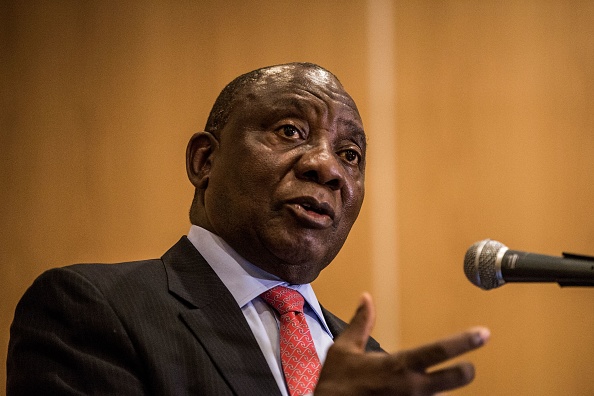Johannesburg – Riots and looting that rocked two major cities in July were a “deliberate” effort to derail South Africa’s economy, President Cyril Ramaphosa told an inquiry on Friday.
But he said investigations to find the suspected masterminds behind the country’s deadliest episode since the end of apartheid were still continuing.
“The fundamental cause of the unrest was a deliberate decision by certain individuals to instigate, coordinate and incite widespread destruction of property, violence and looting,” Ramaphosa told the South African Human Rights Commission.
The unrest sought “to cripple the economy” and “severely weaken” the democratic state, he said.
Ramaphosa gave no details as to who in his opinion was behind the violence, or their motives.
The fundamental cause of this unrest was a deliberate decision by certain individuals to instigate, coordinate and incite widespread destruction of property, violence and looting.https://t.co/6bIC5Q8Shu
— Cyril Ramaphosa ?? (@CyrilRamaphosa) April 1, 2022
“The identity of these individuals and the motives for their actions are the subject of ongoing investigations and legal proceedings,” he said.
The unrest left more than 350 dead and cost the economy some 50 billion rand ($3.3 billion, 3.1 billion euros).
The riots began as protests after Ramaphosa’s predecessor Jacob Zuma was jailed for contempt of court over his refusal to testify before corruption investigators.
Zuma is idolised as a champion of the poor in the radical wing of the ruling African National Congress (ANC).
More than 2,500 people were initially arrested, mostly for minor charges.
ALSO READ | SA’s Human Right Commission opens hearings into July riots that left at over 300 dead
Ramaphosa has repeatedly stated that those behind the unrest would face justice.
But only eight have been prosecuted, according to the elite Hawks police unit.
At the time, Ramaphosa vowed to overhaul the leadership of the security services, which had been caught badly offguard.
In February, South Africa’s police chief General Khehla Sitole was dismissed.
A new police commissioner was appointed Thursday, and Ramaphosa said he had begun the process of filling vacancies for other top jobs.
Zuma was released on health grounds a few weeks after the riots. One of his corruption trials is scheduled to begin on April 11.
Follow African Insider on Facebook, Twitter and Instagram
Source: AFP
Picture: Getty Images
For more African news, visit Africaninsider.com


